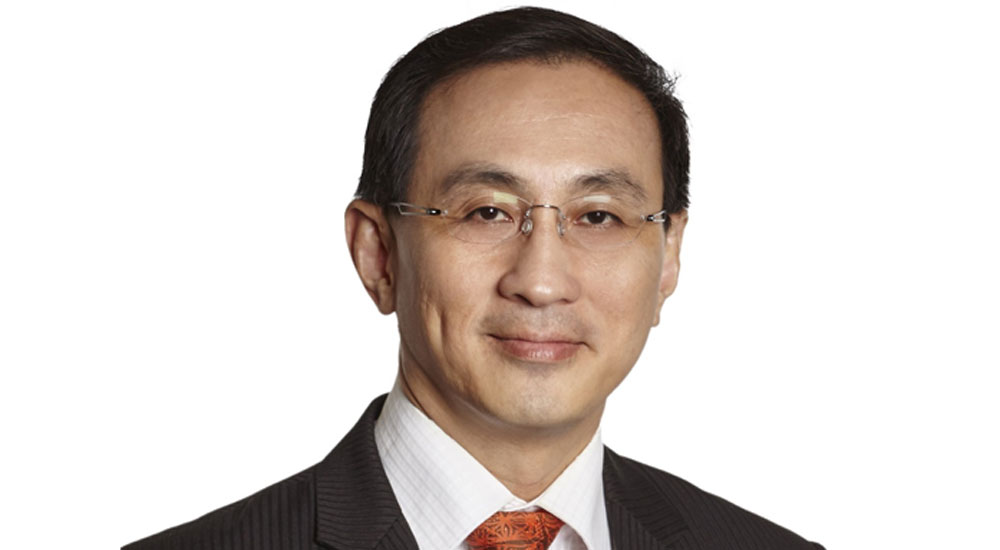The heat is on.
The Straits Times published a a series of in-depth articles (here, here and here) on Nov. 5, 2017, effectively putting the "Should SMRT CEO Desmond Kuek step down?" question on the national agenda and etching it into the public consciousness.
Here are three salient points Singaporeans can acquaint themselves with about this issue:
1. The dilemma of keeping the SMRT CEO or letting him go
Asking if the SMRT CEO should step down was framed as part of a ST listicle questioning how deep the SMRT rot is and where the buck should stop.
This is unprecedented, to say the least, as calls for the SMRT CEO to quit have thus far been mainly made by the frustrated public on social media as a form of retaliation in response to unsatisfactory train services.
This shift could be taken as a sign that something major in SMRT is happening and ST could have gotten wind of it.
And then there exists the conundrum: Should Kuek be made to stay on to fix the problem or should he be allowed to leave?
The instinct to let him go is satisfying in the short run, but it essentially renders the current situation unsolved for the next CEO to fix.
And if Kuek leaves, this also means letting him go after more than five years at the helm but not having much progress to show for.
Can the public accept that?
[related_story]
2. The military culture in SMRT
An amnesty exercise was carried out for a few days in SMRT and ended on Friday, Nov. 3.
This was to allow staff to own up to lapses before a wide-scale audit was launched to pinpoint problematic areas.
A company amnesty is not unique and neither is it a usual practice, as it has been carried out before in larger companies overseas in the wake of things going wrong.
ST reported that the massive internal audit at SMRT, which has begun, has been named Operation Osprey.
According to the report, "Osprey" is the name of a predatory hawk, which is a sign that the company is determined to hunt down any other potential perpetrators of malpractice.
Therefore, if the military culture at SMRT has not been clear to outsiders until this point in time, these two examples are the most obvious indications.
These are the manifestations of military minds working and imposing its ethics and style on a civilian transport outfit that has to be run more like a sleek corporate unit.
Anyone who has ever been through National Service in Singapore will attest that being made to own up to one's mistake is one of the crudest practices that NS-obligated Singaporeans have ever witnessed.
Experts quoted in ST have pointed out that owning up does not absolve one of liability or allows one to be legally protected from prosecution if the authorities decide to probe matters further, so it is potentially self-incriminating to do so.
Worse, the greatest downside of SMRT's failings is producing the irritating side effect of making former military men in corporate management look bad in general.
3. Former and current senior SMRT staff are speaking to the media anonymously
A lot of the information ST reported on in one of the pieces they published stems from speaking to anonymous sources within and outside SMRT, who are familiar with the company's working culture.
They were quoted anonymously because they are not authorised to speak with the media, but nonetheless, have chosen to speak up regardless.
This shows that there are individuals who are trying to give another side of the story that is different from what the management is saying and attempting to shift the public attention away from the stage-managed perspective.
And more crucially, there is a conspicuous absence of even suggesting that a whistle-blowing culture be established, which could potentially surface any problems a lot faster than an amnesty exercise.
Last but not least, the top echelons in SMRT might have unwittingly pitted themselves against its own staff.
During the Oct. 16 press conference, Kuek said "nine in 10 of our people are incredibly committed, professional and commuter focused", but "there remain some deep-seated cultural issues within the company that has needed more time than anticipated to root out".
SMRT has 10,000 employees. The one in 10 staff that are supposedly not pulling their weight in the CEO's eyes comes up to 1,000 individuals.
If the CEO can point fingers at his employees, he can expect to have a lot of fingers pointing back at him.
This then goes back to point 1: Is the call for Kuek to step down not only growing louder in public but also from within his own organisation?
This could then explain the blatant calling out of the issue in ST in the first place.
If you like what you read, follow us on Facebook, Instagram, Twitter and Telegram to get the latest updates.
